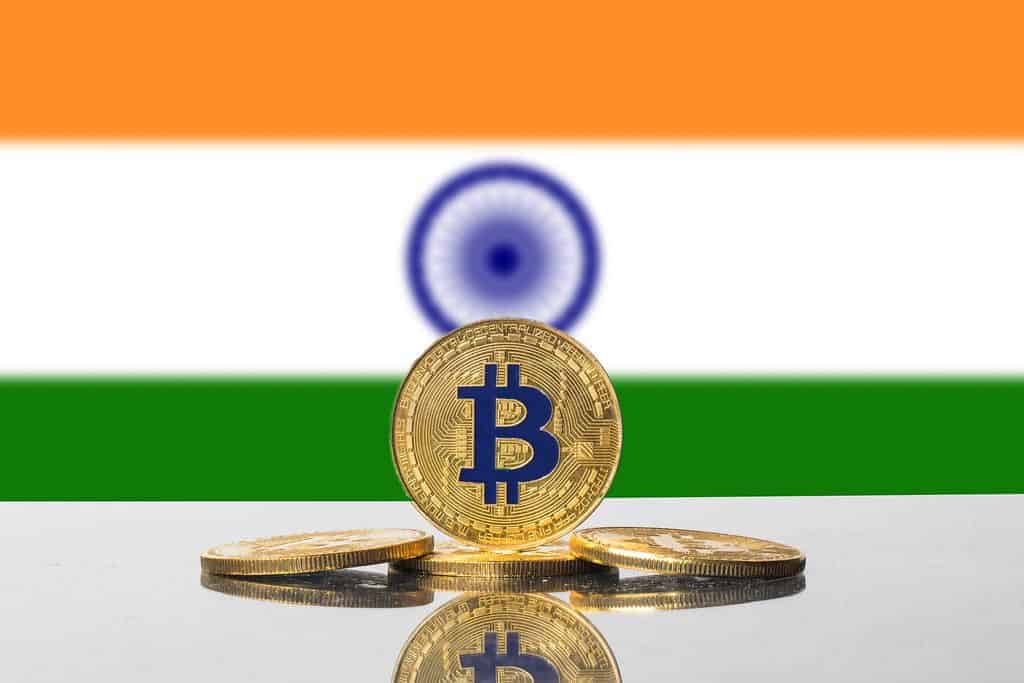India is introducing new cryptocurrency disclosure rules. Effective today, any company that deals in cryptocurrencies will have to disclose their entire crypto holdings to the government as part of their financial statements.
According to the Ministry of Corporate Affairs (MCA), a state regulatory authority on corporate affairs in India, every company that “has traded or invested in cryptocurrency or virtual currency during the financial year” is now obligated to disclose all cryptocurrency holdings, total profits and losses, and deposits or advances received from anyone trading or investing in cryptocurrencies.
Reports by local media indicate that the latest MCA regulation is being welcomed by cryptocurrency-associated firms in India, as they believe it would legitimize cryptocurrency transactions. Industry insiders also say the new disclosure laws indicate that the government is looking at regulating the industry rather than an outright cryptocurrency ban.
“In light of the recent speculation around ban, allowing cryptocurrencies to be a part of accounting practices will definitely put investors at ease as they no longer have to be worried regarding taxation,” said Monark Modi, founder and CEO of Indian cryptocurrency exchange Bitex. “This is a definite endorsement, and it is good to see that India is not falling behind the global cryptocurrency race. Bringing regulation that provides safety to investors, factors taxation and fosters cryptocurrency as an alternate investment class will be the right step ahead.”
What does India’s new regulation signal?
The MCA crypto regulation comes at a time of legal ambiguity for cryptocurrencies in India. In January 2021, the Indian government introduced a bill into its parliament that proposed a ban on cryptocurrencies except for the digital currency that the RBI plans to issue in the future.
The messages from the government on what the cryptocurrency ban means for the industry have been mixed. On March 15, Reuters reported that the trading, mining, issuance and possession of cryptocurrencies are expected to be criminalized in India under the upcoming legislative bill.
In the same report, however, the minister of finance and corporate affairs, Nirmala Sitharaman offered cryptocurrency investors some reassurance that the government was taking a balanced approach to the regulation and was “not shutting all options.”
From complete ban to regulation, there are many competing theories as to what actual intentions the Indian government has for cryptocurrencies following the MCA cryptocurrency disclosure legislation. The fact that the government has asked for disclosures appears to many that the move may be to regulate rather than ban cryptocurrencies.
India’s crypto industry has led a concerted effort to counter the government’s attempts to ban crypto. Industry leaders have been trying to make the case that a full crypto ban would hurt not only crypto users and the nation’s unbanked but could potentially harm a slew of other business in the country as well. In a November 2020 RBI Bulletin, the central bank said there were 342 crypto products and services in India.
The overall popularity of virtual assets like Bitcoin is also sky-high in India. According to a 2018 report by Quartz, one in every 10 bitcoin purchases in the world happened in India. The country is also the second-largest source of web traffic to peer-to-peer bitcoin trading platform Paxful. Additionally, India is ranked 11th in a 2020 report by Chainalysis that lists global cryptocurrency adoption by nation.
Jeremy Britton, the CFO of BostonCoin, told Forkast.News he believes efforts to ban cryptocurrency in India will prove futile.
“India putting a crypto ban is not going to make people stop using crypto. It’s just going to make people use crypto illegally,” Britton said. “That’s going to make people distrust the government. And they know the entire world is using this […] it’s not going to stop people doing it. In fact, it’ll have the opposite effect.”
Due to crypto’s surging popularity both in India and globally, Britton said, “the government is fighting a losing battle and they will look very, very silly trying to ban crypto. Whereas other countries such as China tried to ban crypto in 2018, they let it go, then they banned it again and let it go and banned it again.”
India’s oscillating positions on crypto
India has a checkered history with cryptocurrency, and its own government has had oscillating attitudes toward either banning or regulating virtual currencies like Bitcoin. Many top Indian officials have reportedly labelled cryptocurrency a “Ponzi scheme.”
In 2013, just days after the first crypto exchange opened its doors in India — the Reserve Bank of India (RBI), immediately issued a warning to citizens on the risks of investing in cryptocurrencies.
In April 2018, the RBI prohibited India’s banks from providing services to crypto exchanges and businesses dealing with digital assets. India’s crypto industry was outraged and challenged the barring of bank services in court. But the crypto banking ban was lifted in March 2020 when India’s Supreme Court ruled against the RBI.
Despite the RBI remaining skeptical about cryptocurrency, the central bank has continued to encourage India’s banks to leverage blockchain technology and is also currently exploring the possibility of issuing a central bank digital currency backed by the Indian rupee.
“It’s about who controls cryptocurrency in India more than anything else. Because the Reserve Bank of India just keeps on promoting digitization, and they want to have a CBDC,” said Indian born cryptocurrency investor Sagar Sethi, the founder of digital marketing agency Xugar, in an interview with Forkast.News. “They are backing it [cryptocurrency] on one front — they’re backing digital currency and digitizing their own currency.”
Sethi also believes that an outright cryptocurrency ban would likely fail in India. “Digitization is also at its peak. The government keeps on promoting digitizing their own departments,” Sethi said. “If you really look at where the economy is going in correlation to what India wants to do, it’s more the control that needs to be put in place, or that’s what the government is trying to do. At most, regulations will be at its peak, regulations will keep on coming. But banning cryptocurrency in India, I don’t think that’s possible.That will never happen.”






